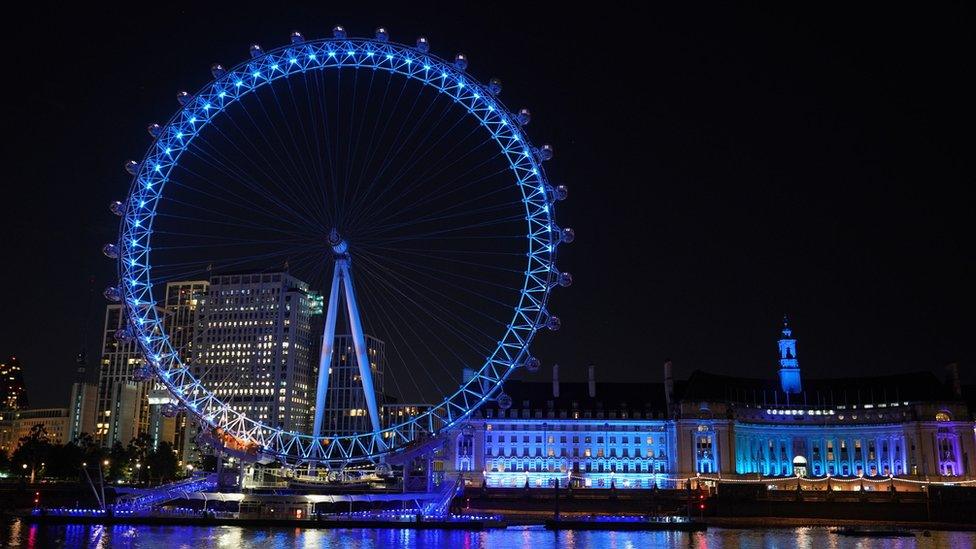PM announces pay rise for millions of public sector workers
- Published
- comments
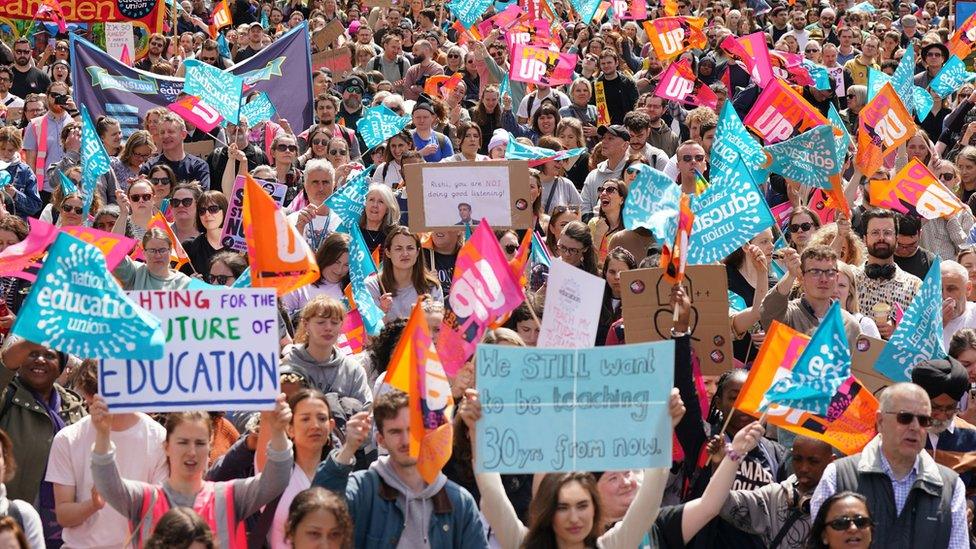
Thousands of teachers have been striking this year for better pay.
Prime Minister Rishi Sunak has announced that teachers and millions of other people who work in the public sector in England and Wales will be offered a pay rise.
People who work in the public sector work at jobs run by the government and paid for with people's taxes, for example the NHS.
Lots of workers, like teachers, police and junior doctors have been on strike recently as they feel that their pay isn't enough for the work they do.
The government has now agreed to pay the workers between 5% and 7% more money, with teachers in England being offered 6.5% more than they earn now.
The trade unions, like the National Education Union, will now have to decide whether to accept the offer for their workers, like teachers, which would put an end to school strikes.
Prime Minister Rishi Sunak has said this is a "final" offer and that "there will be no more talks on pay" and that more strikes will not change their decision.
What will this mean for my teachers and my school?
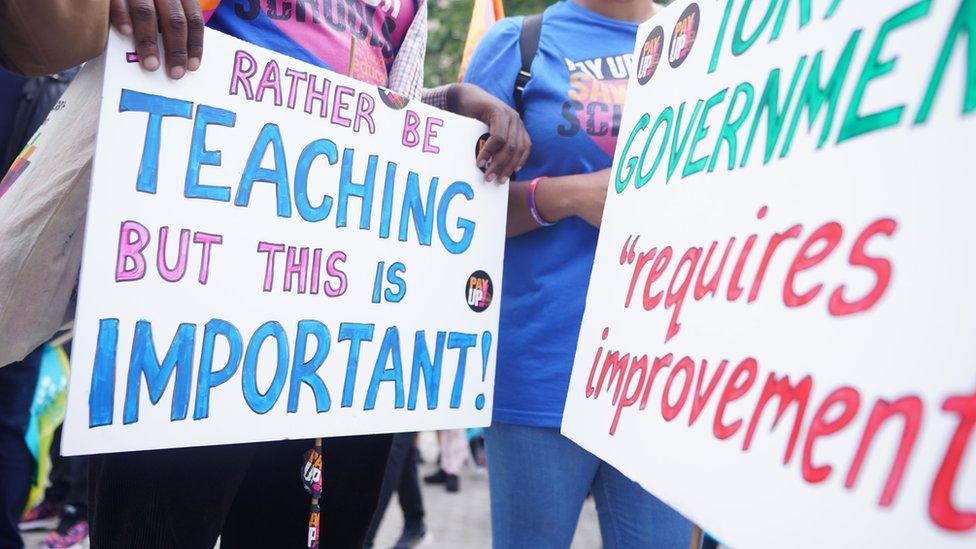
There's been seven national strike days by members of the National Education Union since February.
You might have had a few days off school this year, as teachers have been striking over pay. There's been seven national strikes by members of the National Education Union since February.
But the teacher strikes and days off school could be coming to an end in England, as the government has offered teachers a 6.5% pay rise for their work.
Teachers have argued that they do not receive enough money for the work they do, and that general underfunding in schools means they're having to cut back on things for their students.
A strike is when a group of workers decide to stop working to try to bring about change.
Employees do this when they want to protest against something they think is unfair where they work, like pay or working conditions.
Strikes often happen because workers want those in charge to listen to what they want.
A strike is a way of taking industrial action to protest.
The Department for Education has said this pay rise will be "properly funded", which means schools will get extra money to pay teachers more so they won't have to make cuts to students' resources or equipment.
All four teaching unions have said they will recommend that their members to accept the government pay offer.
The prime minister, education secretary and education unions all released a joint statement, which is not that common. They all agreed that teachers play a "vital role" and want to encourage people to become teachers themselves.
A 6.5% increase for teachers and school leaders recognises the vital role that teachers play in our country
There are no more strikes planned for teachers in Wales or Northern Ireland. And in Scotland a pay deal has already been agreed.
Which other workers have been offered a pay rise?
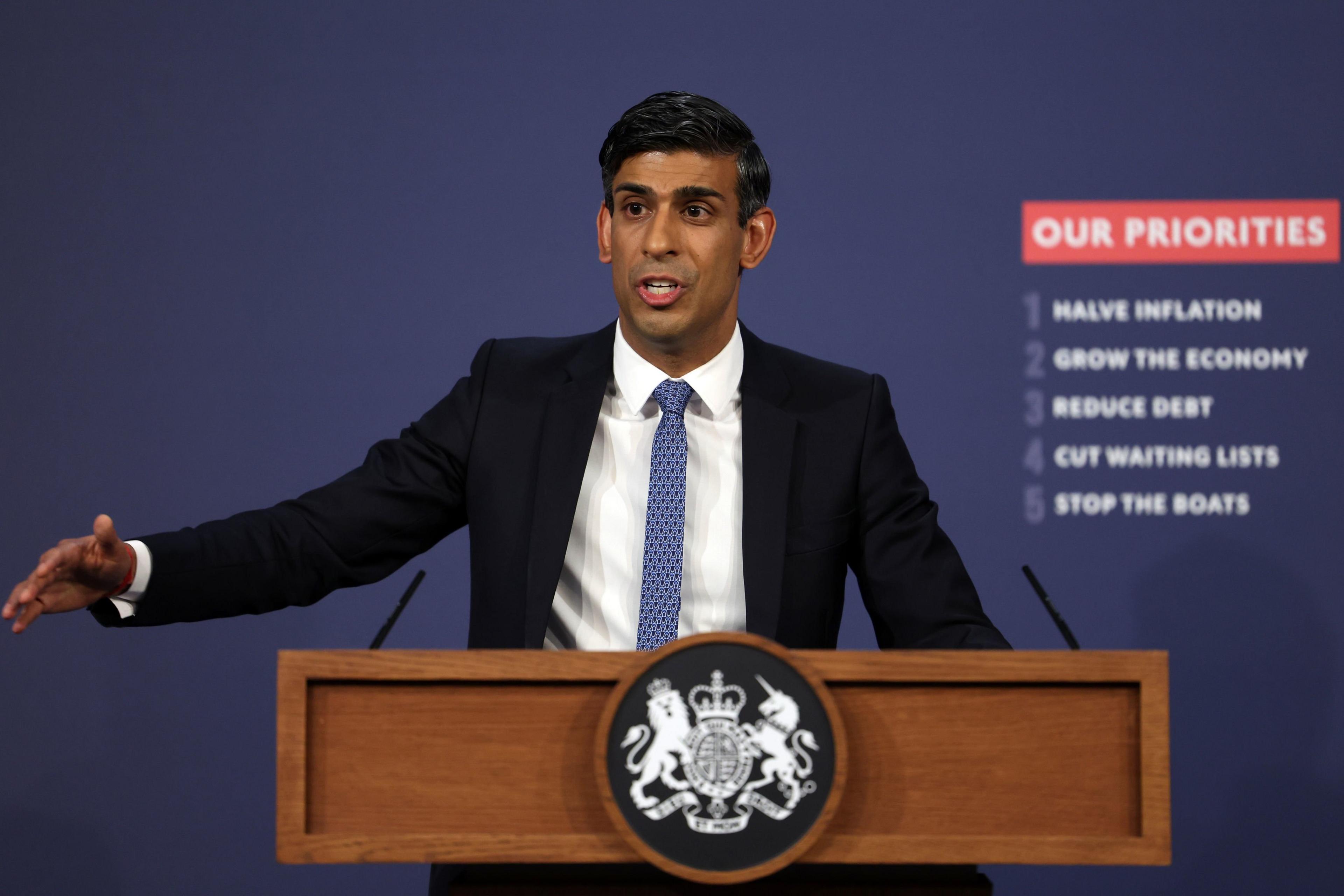
Prime minister Rishi Sunak has offered public sector workers a pay rise between 5% and 7%
Teachers aren't alone in being offered a government pay rise following strikes. Other public sector workers have also been made pay rise offers from the government.
Teachers: 6.5% (England)
Police officers: 7% (England & Wales)
Consultants, dentists and GPs: 6% (England)
Junior doctors: 6% + £1,250 (England)
Prison officers: 7%(England & Wales)
Armed forces: 5% + £1,000 (UK)
But not everyone is happy with what has been offered. Police officers in England and Wales were offered 7% more. They said it was a step in the right direction, but still not enough.
On Thursday, junior doctors in England began a five day walkout. They'd asked for a 35% pay increase and this was rejected by the government.
Junior doctors in England have now been offered 6% and a bonus £1,250 but have said this is not enough to stop them striking.
What will happen now?
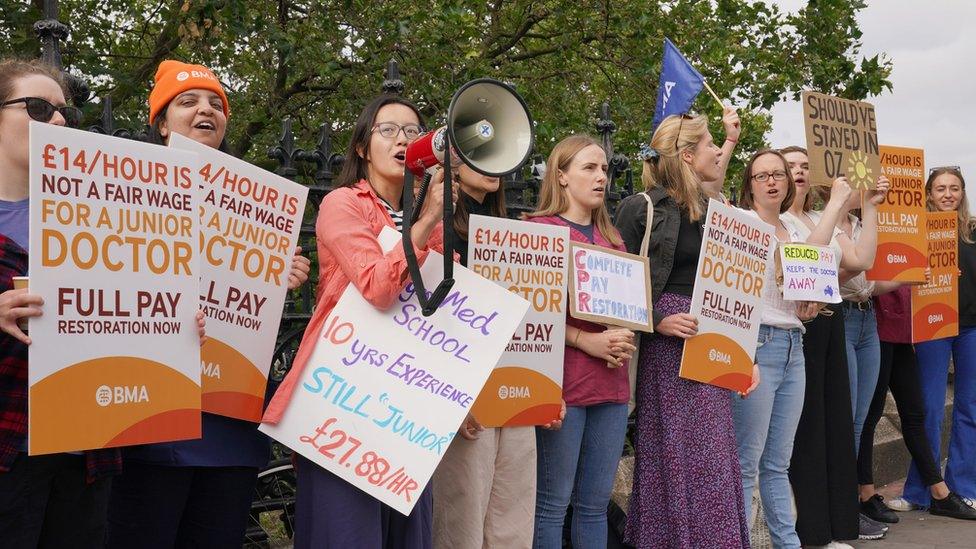
Junior doctors asked for a 35% pay rise and have been offered much less
The unions will now go and discuss with their members whether they will accept the deals or not. If they do, strikes in various different sectors will come to an end.
A trade union is an association of workers that wants to make things better in their workplace.
They speak for their members over all important parts of their job, like wages and working hours.
It's not clear where all the extra money is going to come from to pay these workers.
Rishi Sunak has said he would not increase borrowing or raise taxes to cover the cost of the raises.
He said just over half of the money will be raised by forcing migrants to pay more to apply for visas and access the NHS.
The rest of the savings will come from "reprioritisation" within government departments.
There will be no more talks on pay...no amount of strikes will change our decision.
The prime minister has said this is a "fair deal for workers" and encouraged the unions to accept the deals.
- Published26 August 2022
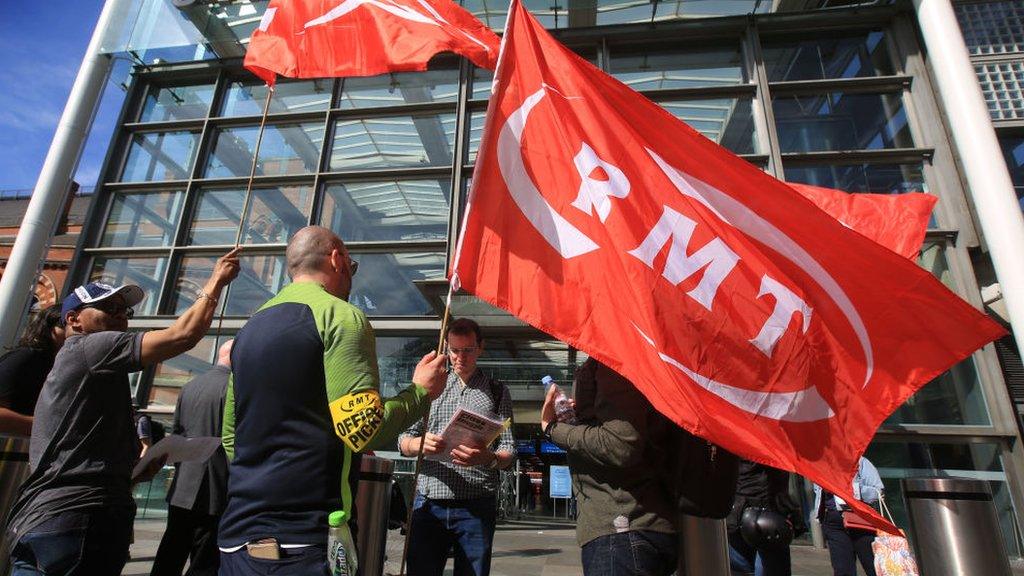
- Published18 November 2022
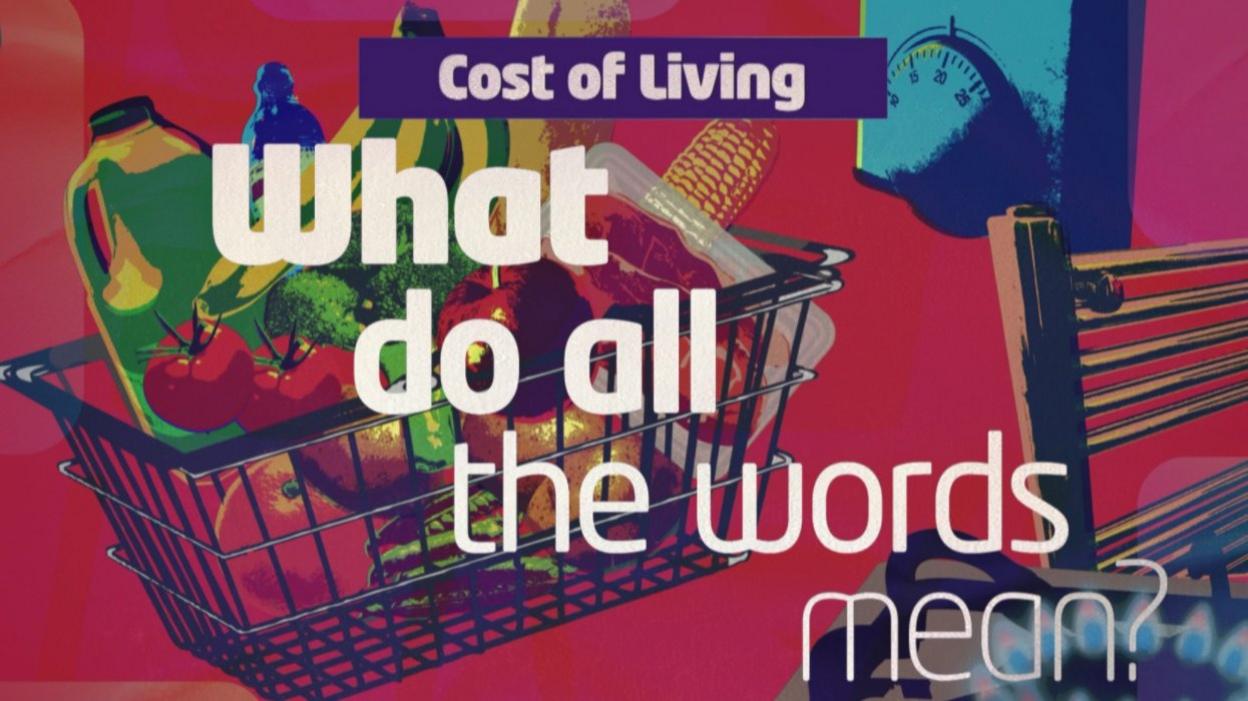
- Published6 July 2023
